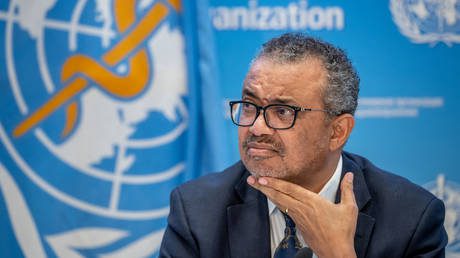Health
COVID-19 spreads, facemask use will start

According to the World Health Organization (WHO), the public should wear facemasks as long as COVID-19 infections are present.
In light of the COVID-19 virus’s current global expansion, the WHO released the update.
According to the organisation, masks are advised for anyone who has recently been exposed to COVID-19, has COVID-19 or fears they do, is at a high risk of developing severe COVID-19, is in a crowded, confined, or poorly ventilated place, or is in any of these situations.
From December 31, 2022, to January 13, 2023, there were 42 more confirmed cases of COVID-19.
In 36 states and the Federal Capital Territory, Nigeria has so far reported 266,492 COVID-19 confirmed cases, 3,155 deaths, and 259,858 individuals that have been discharged.
As of January 13, WHO had heard about 661,545,258 confirmed cases of COVID-19, of which 6,700,519 people had died.
In a recent press release, the WHO stated that their recommendations “were previously based on the epidemiological condition.”
A presidential candidate has tested positive for COVID-19.
According to a risk assessment, the WHO says that there are various situations in which a mask may be indicated. The local epidemiological trends or rising hospitalisation rates, the community’s immunity and vaccination rates, and the environment in which people are living are all important factors to take into account.
The WHO also suggested that if a COVID-19 patient showed negative results on an antigen-based fast test, they could be released from isolation earlier.
“The revised recommendations include 10 days of isolation from the date of symptom onset for patients with symptoms without testing. Before this, the WHO said that patients should stay in the hospital for at least three more days after their symptoms went away before they could go home.
“The WHO now recommends five days of isolation in the absence of testing for people who test positive for COVID-19 but do not exhibit any signs or symptoms, down from 10 days previously.”
“Isolating COVID-19 patients is a crucial step in preventing the infection of others.” This can be carried out at home or in a special setting, such as a hospital or clinic, as stated.
The organization’s data analysis revealed that people who did not have symptoms were far less likely to spread the virus than those who did.
Evidence also indicated, albeit with very little assurance, that patients with symptoms who were discharged on day five after symptoms started ran a threefold higher risk of infecting others than those who were discharged on day ten.
Nirmatrelvir-ritonavir, which is sold under the brand name “Paxlovid,” is still strongly recommended by the WHO.
However, given the drug’s “potential advantages” and lack of recorded side effects, it advised pregnant or nursing women with non-severe COVID-19 to speak with their doctor before deciding whether to use it.
WHO first endorsed nirmatrel-ritonavir in April 2022. The WHO strongly advises using it in patients with mild or moderate COVID-19 who are at high risk of hospitalization.The first generic medication manufacturer was prequalified by WHO in December 2022.
WHO also examined the evidence for two other medications, sotrovimab and casirivimab-imdevimab, and continues to strongly advise against using them to treat COVID-19. These monoclonal antibody medications don’t work as well or at all against the virus versions that are currently circulating.
There are presently six effective treatment options for COVID-19 patients, three of which keep high-risk individuals out of the hospital and three of which help people with severe or critical illnesses live longer. Except for corticosteroids, access to other medications is still not enough everywhere, according to the UN agency.
